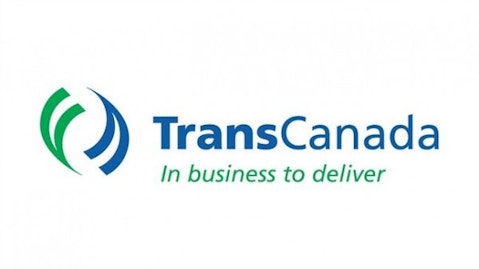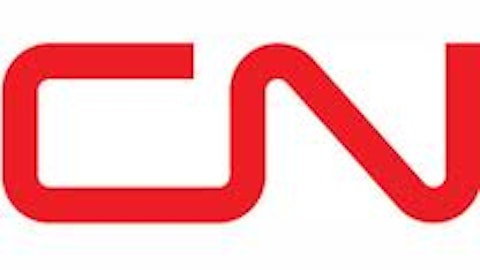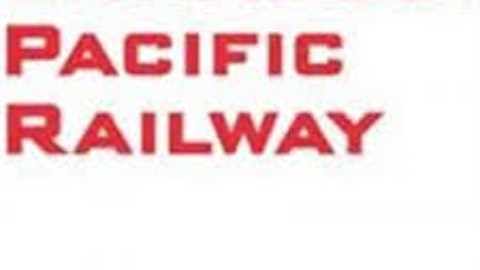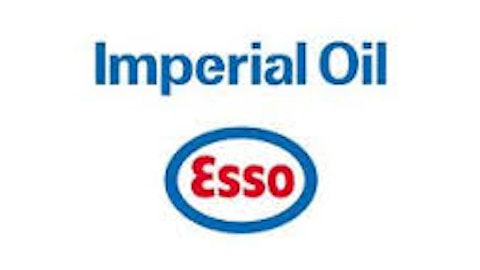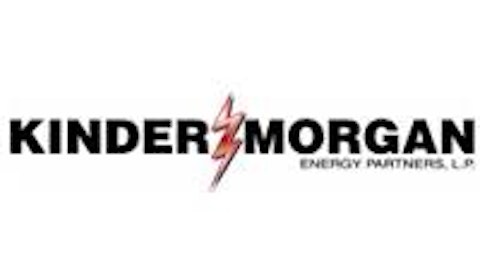In the race to move Canadian crude, pipelines are losing.
Pipelines, built by companies such as TransCanada Corporation (NYSE:TRP) and Enbridge Inc (NYSE:ENB), once carried nearly all of the crude oil shipped through the country. This year, however, nearly 10% of Canadian crude oil production will flow, not through buried pipes, but trains.
But which one will win out? Let’s investigate.
The story
Rail has quietly become a popular mode of oil transportation in North America — especially as production has been overwhelming existing pipeline capacities.
With TransCanada Corporation (NYSE:TRP) Keystone XL pipeline block by environmental groups, American refiners have begun shipping crude from the Canadian tar sands via rail. In February, a record 12,970 carloads of crude were shipped across Canada, up 150% year-over-year.
This trend is benefiting Canadian railroads.
Canadian Pacific Railway Limited (NYSE:CP) increased its crude shipments 30% to 70,000 carloads in 2013. This figure is expected to double by 2015.
Canadian National Railway (NYSE:CNI) moved 100,000 b/d in 2012 accounting for 7% of revenues. Management projects its crude shipments to double by the end of 2013.
So of the two transportation options, which is the best for moving Canadian crude?
Pros and Cons
Costs
According to the U.S. State Department report, shipping crude from Canada to the Gulf coast costs $10 per barrel by pipeline and $15-$20 per barrel by rail. This is why rail never took off before. It was simply not an economical alternative compared to moving crude by pipeline.
However, that all changed when the discount between Western Canadian Select to other benchmarks exceeded $40 per barrel last winter. Suddenly shipping by rail became attractive.
Winner: Pipelines
Politics
Want to build a pipeline? Get ready for an expensive, multi-year battle against landowners and governments.
TransCanada Corporation (NYSE:TRP)’s Keysone XL proposal faces numerous challenges. If approved, the project would ship 830,000 b/d of heavy Canadian crude oil to Gulf coast refiners. While the project has been approved by the State of Nebraska, Keystone still faces numerous political obstacles and overall resistance to build.
It’s not just TransCanada Corporation (NYSE:TRP) facing construction gridlock. Enbridge Inc (NYSE:ENB)‘s proposed Northern Gateway and Kinder Morgan’s Trans Mountain pipelines, which would ship Canadian crude west to access Asian markets, also faces heavy resistance from environmentalists.
In contrast, extensive rail infrastructure is already in place. Producers can access any market with a offloading terminal. New terminals can be added within a few months without any political turmoil.
Winner: Rails
Convenience
Shipping by rails has several advantages for producers. Moving heavy bitumen requires less diluent and allows for higher sulfur content representing a big cost savings.
Refiners also prefer rail shipments to pipelines because they have greater certainty regarding the quality of product received as there’s less mixing of batches during transit.
Winners: Rails
Environment
This is challenging.
TransCanada Corporation (NYSE:TRP) President Alex Pourbaix has stated that rail transport is ten times more likely to spill and create three times more greenhouse gasses.
In contrast, Canadian National Railway (NYSE:CNI) has argued the opposite. Their statistics show rail emits 50% less carbon emissions than pipelines and spills less crude oil by volume.
These contradictions highlight the need for more independent research.
According to a recent report by the IEA, pipelines are six times less likely to spill. However, when pipelines burst they’re catastrophic events spilling more oil when they rupture. Rails spill 0.38 gallons of oil per million barrels moved compared to 0.88 gallons for pipelines.
Of course, these statistics are little comfort to environmentalists who are against tar sand development regardless of the transport method.
Winner: Wash
Foolish bottom line
So which one will win out?
The key will really come down to the the difference between the price for Canadian crude and other international benchmarks. Refineries will only pay a premium for rail shipments as long as Canadian crude is sufficiently cheap and southbound pipelines remain clogged. If this spread narrows, railroads will lose market share quickly.
Robert Baillieul has no position in any stocks mentioned. The Motley Fool recommends Canadian National Railway (NYSE:CNI).
The article Pipelines Versus Railroads originally appeared on Fool.com.
Robert is a member of The Motley Fool Blog Network — entries represent the personal opinion of the blogger and are not formally edited.
Copyright © 1995 – 2013 The Motley Fool, LLC. All rights reserved. The Motley Fool has a disclosure policy.
